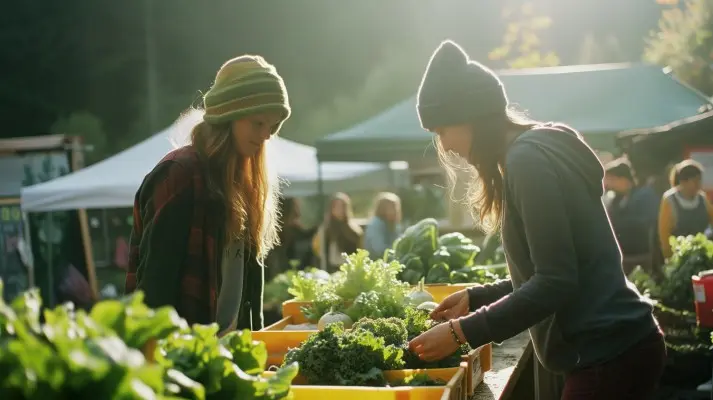Sustainability is now a pivotal focus within the food industry, influencing both consumer choices and business strategies. As people become more conscious of the environmental impact of their food, certifications and labels have become essential tools for guiding these decisions. Here’s a closer look at some of the most recognized sustainability labels and how they help create a more transparent and eco-friendly food landscape.
The Evolution of Food Industry Certifications
Over the past few decades, the food industry has increasingly embraced sustainability, driven by consumer demand for transparency. Certifications like LEED (Leadership in Energy and Environmental Design) and Green Seal are leading the way, helping businesses demonstrate their commitment to the environment. LEED certification, for instance, extends beyond material sourcing to include the entire building’s design and functionality. A LEED-certified facility showcases a strong commitment to energy efficiency, sustainable resource management, and an overall reduced environmental footprint.
For food industry stakeholders, adopting such certifications means ensuring that both the physical space and the day-to-day operations are environmentally responsible. By achieving a LEED certification, restaurants, food processing plants, and facilities communicate their dedication to sustainable practices, appealing to eco-conscious consumers and reinforcing their brand reputation.

Decoding the Meaning Behind the Labels
Each sustainability label represents a different aspect of eco-friendly practices. The USDA Organic label, for example, guarantees that food products have been produced without synthetic pesticides, GMOs, or artificial additives. This label doesn’t just stand for organic farming; it also supports sustainable agriculture practices that maintain soil health and biodiversity, enhancing both product quality and environmental well-being.
On the other hand, the Fair Trade certification is centered on ethical sourcing. This label assures that farmers and workers receive fair compensation and work under safe conditions. It’s a way for food brands to show their commitment to social responsibility, making it easier for consumers to choose products that align with their values. As a result, these labels serve as a bridge between producers and consumers, fostering a culture of sustainability throughout the food industry.
Navigating the Complexities of Sustainability
With a plethora of certifications available, understanding the significance of each can be challenging. Labels like Rainforest Alliance focus on conserving biodiversity and ensuring the rights of workers, while Green Seal emphasizes a product’s full life cycle, from production to disposal. These labels make it easier for consumers to make informed decisions, but they also present businesses with the task of meeting diverse and sometimes stringent criteria.

For example, the Rainforest Alliance label isn’t just about sustainability in the product itself; it encompasses a broader environmental and social impact. Products bearing this certification support the preservation of rainforests and provide fair labour conditions, showcasing a business’s dedication to global sustainability.
Why Sustainability Labels Matter to Consumers and Businesses
For consumers, sustainability labels offer clarity amidst a complex web of eco-friendly claims. They provide a straightforward way to identify products that match ethical and environmental standards, from USDA Organic to Certified Humane. A label serves as a trustworthy signal, helping consumers quickly decide what aligns with their values and encouraging them to support businesses that prioritize sustainability.

For businesses, adopting sustainability certifications goes beyond appealing to eco-conscious customers—it’s about long-term resilience. By implementing sustainable practices, companies can reduce their operational costs, attract a loyal customer base, and minimize their environmental impact. This is where HPG Consulting plays a crucial role. While HPG doesn’t focus on acquiring these certifications, it supports businesses in achieving sustainability goals through innovative design. By crafting kitchens, facilities, and food spaces that are eco-friendly and efficient, HPG helps food industry stakeholders create a foundation for sustainable operations.
HPG Consulting’s Role in Sustainable Food Design
HPG Consulting specializes in designing food spaces that prioritize sustainability from the ground up. Whether it’s a commercial kitchen, a corporate dining area, or a hospitality facility, HPG integrates energy-efficient technologies, waste-reducing strategies, and thoughtful layouts to minimize environmental impact. These designs make it easier for businesses to operate sustainably and, in turn, support the values represented by certifications like LEED, USDA Organic, and more.
To learn how HPG Consulting can help your business implement sustainable design principles that align with leading certifications, reach out to us today.